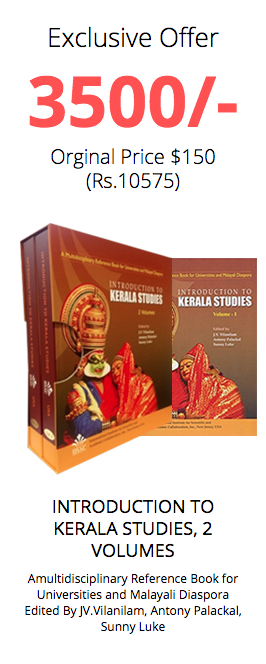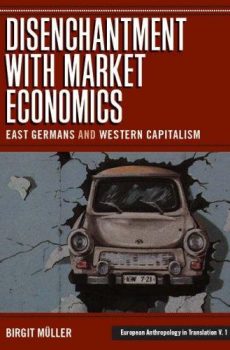
Disenchantment with Market Economics
8,400.00₹ 2,500.00₹
The life-worlds and personal experiences of workers and employees in three enterprises in East Berlin at the moment of political and economic upheaval stand at the centre of the book. It sets out in 1989 at the moment of the fall of the Berlin Wall witnessing the confrontations with the market economy and examining the reinterpretations of the socialist past as the political and economic changes take place.
Disenchantment with Market Economics captures a unique moment in history and unveils myths and promises of liberal market economy from the perspective of those who lived through the break down of the planned economy at their workplaces in East Berlin. While Western managers regarded the expansion of their businesses towards Eastern Europe as a civilising mission, the East German employees reacted with complex strategies of individual adaptation and resistance.

Investigating Social Issues
3,850.00₹ 1,590.00₹
Using economic theory to analyze real events and problems and to evaluate different solutions, this book stresses the importance of value judgements and demonstrates how one person’s success can be another’s disaster. Newspaper cuttings have been used an an integral part of the text to highlight the causes, effects and solutions to these issues and problems. The topics covered include health, education, transport, income distribution, innner cities, regional policy, housing and the environment.
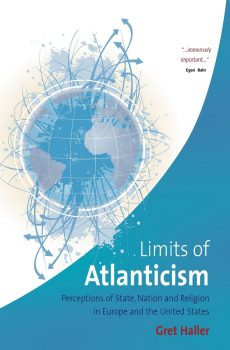
Limits of Atlanticism
8,400.00₹ 2,790.00₹
Working as Ombudsperson for Human Rights in the State of Bosnia and Herzegovina in Sarajevo, Gret Haller became aware that the reactions of the United States and Europe are hardly ever the same, be it in Bosnia or in other parts of the world, with the current crisis in the Middle East offering just another example: in international negotiations it is always the United States that refuses to give up sovereignty. While Europeans view sharing as an instrument to guarantee freedom and peace, Washington sees it as a threat to its independence and power. Instead, the U.S. government relies on unsanctioned campaigns against rogue states. The author is not optimistic that the recent shift in the political climate in the U.S. will change this deeply ingrained attitude. In her book, based on in-depth and first-hand experience in the transatlantic political arena, the author concludes that any fresh approach towards addressing these differences will first require an understanding of their roots in history. In Europe, the Peace of Westphalia of 1648 began a development that led to the emergence of a nation-state that ultimately came to be based on shared sovereignty. In the New World, however, the dominance of society over the state marked a break with that European tradition.

No Word for Welcome: The Mexican Village Faces the Global Economy
2,090.00₹ 990.00₹
Wendy Call visited the Isthmus of Tehuantepec—the lush sliver of land connecting the Yucatan Peninsula to the rest of Mexico—for the first time in 1997. She found herself in the midst of a storied land, a place Mexicans call their country’s “little waist,” a place long known for its strong women, spirited marketplaces, and deep sense of independence. She also landed in the middle of a ferocious battle over plans to industrialize the region, where most people still fish, farm, and work in the forests. In the decade that followed her first visit, Call witnessed farmland being paved for new highways, oil spilling into rivers, and forests burning down. Through it all, local people fought to protect their lands and their livelihoods—and their very lives.
Call’s story, No Word for Welcome, invites readers into the homes, classrooms, storefronts, and fishing boats of the isthmus, as well as the mahogany-paneled high-rise offices of those striving to control the region. With timely and invaluable insights into the development battle, Call shows that the people who have suffered most from economic globalization have some of the clearest ideas about how we can all survive it.
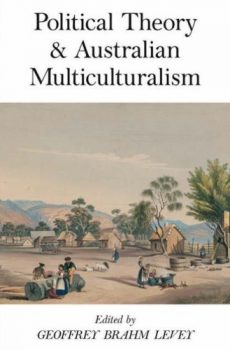
Political Theory and Australian Multiculturalism
8,400.00₹ 2,790.00₹
Multiculturalism has been one of the dominant concerns in political theory over the last decade. To date, this inquiry has been mostly informed by, or applied to, the Canadian, American, and increasingly, the European contexts. This volume explores for the first time how the Australian experience both relates and contributes to political thought on multiculturalism. Focusing on whether a multicultural regime undermines political integration, social solidarity, and national identity, the authors draw on the Australian case to critically examine the challenges, possibilities, and limits of multiculturalism as a governing idea in liberal democracies. These essays by distinguished Australian scholars variously treat the relation between liberalism and diversity, democracy and diversity, culture and rights, and evaluate whether Australia’s thirty-year experiment in liberal multiculturalism should be viewed as a successful model.
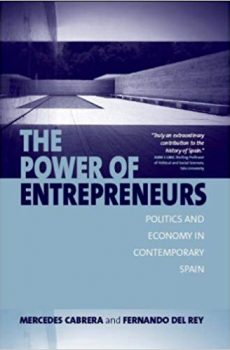
The Power of Entrepreneurs
8,400.00₹ 2,050.00₹
Although Spain is an important member of the EU, relatively little is known about its economy and its interrelationship with political forces. This book, the first of its kind, offers a long-term view and analyzes this ever-changing relationship throughout the 20th century with its various upheavals such as the crisis of the democratic republic and the civil war in the 1930s, the long General Franco dictatorship from the 1940s until the 1970s and the subsequent transition to democracy. From the detailed studies of individual cases, specific companies as well as entrepreneurial organizations, a very diverse picture emerges, contradicting widespread simplistic interpretations of politico-economic linkages, which demonstrates both the pluralism of the economic interests as well as the complexity of their relationship to the political class.

